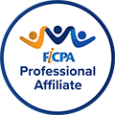What were the Prior Standards for Registering “.com”?
A domain name is the web address that identifies a website. Any website with a “.com” will be the domain name for that website. While trademarks are federally registered through the USPTO, domain names for websites are registered through a domain name registrar.
Domain name registrars must be accredited by ICANN (Internet Corporation for Assigned Names and Numbers). The main group of domains, which includes “com,” “info,” “neg,” and “org”, is known as Generic top-level domains, or gTLDs. These domains can be registered with any of the ICANN-accredited registrars, like for example, GoDaddy.
Undoubtedly, the domain “.com” is the most recognized top-level domain. The advantage of registering a domain name with a .com gTLD is that such websites are generally trusted by Internet users given how common they are. They also work well for search engine optimization (SEO) and tend to appear at the top of search results.
However, registering a trademark – meaning, the source of goods and services – and registering a domain name – meaning, a web address – are two different things. Thus, one does not obtain a trademark from registering a domain name. However, companies with “.com” in their domains are sometimes both trademarks and registered domains. If the domain name is used to identify the source of particular goods and services in addition to the web address, then the domain name can function as a trademark. Now, the United States Supreme Court has ruled on the issue of registering a trademark with the “.com” moniker as a suffix, in the case of “United States Patent and Trademark Office v. Booking.com”.
What was the Court Opinion of United States Patent and Trademark Office v. Booking.com?
Booking.com, the online service used to book hotel rooms, flights, vehicles, and attractions, recently earned a big victory at the Supreme Court. On June 30, 2020, the Supreme Court decided in an 8-1 decision that Booking.com was not a generic term, as initially deemed so by the United States Patent and Trademark Office (USPTO). With oral arguments heard via teleconferencing services due to the COVID-19 pandemic, United States Patent and Trademark Office v. Booking.com was the first case in history to not be decided in person.
The case came about when Booking.com sought to register their name as a federal trademark in 2012. Their request was rejected by the USPTO on the grounds that it was a generic name that could not be registered. Booking.com thus took the matter to court, and it reached the Supreme Court in 2019.
Originally, the USPTO had argued that the Court should adopt a per se rule that would prohibit Booking.com from being registered, irrespective of consumer perception The USPTO argued that as a term that refers to online reservation services for travel, tours and lodging, Booking.com is a generic term ineligible for registration. Furthermore, they argued that even if it is deemed descriptive instead of generic, the term does not have a secondary meaning.
In an opinion by Justice Ruth Bader Ginsburg, the Supreme Court rejected this argument and deemed Booking.com non-generic. First, the Court said that a generic term refers to a class of goods or services, not to any specific quality of the class. Additionally, since Booking.com is a compound term, its meaning must be taken as a whole, not by the meaning of “Booking.” or “.com” individually. Lastly, the Court ruled that the term’s relevant meaning refers to its meaning to consumers.
In his dissent, Justice Stephen Breyer said that the generic “.com” domain in the term renders the whole combination generic. Nonetheless, the Court ultimately ruled that a term’s generic nature is contingent on consumers’ ability to regard that term as referring to a specific class.
Can I now register a mark with “.com” with a Miami Business Attorney?
The issue addressed by United States Patent and Trademark Office v. Booking.com concerned the issue of trademarking terms of a generic nature. Thus, after this Supreme Court ruling, those seeking to use “.com” for their websites will have a better likelihood of receiving a trademark along with a domain name registration.
Owners of popular websites with “.com” in their domains can register their trademarks with the USPTO, while also registering their domain name through the domain name registrar. Just registering the domain name would not give them the trade mark, they would need to do both. If the name identifies a particular website, and also identifies the source of goods and services, then a “.com” website can be both trademarked and registered.
A Miami business lawyer can help you file your trademark application. The process entails filing fees, and can actually take a year or more. If there is a conflict with another trademark, a trademark lawyer can help you solve the problem and advocate on your behalf. Upon receiving a “Notice of Publication,” your trademark will be published in the PTO’s Official Gazette to give others the chance to oppose your mark registration. If there is no opposition, you will receive a Certificate of Registration or Notice of Allowance, depending on if your mark is already being used in commerce. PTO mark registration entails renewing one’s registration and filing affidavits stating that you are still using your mark.






